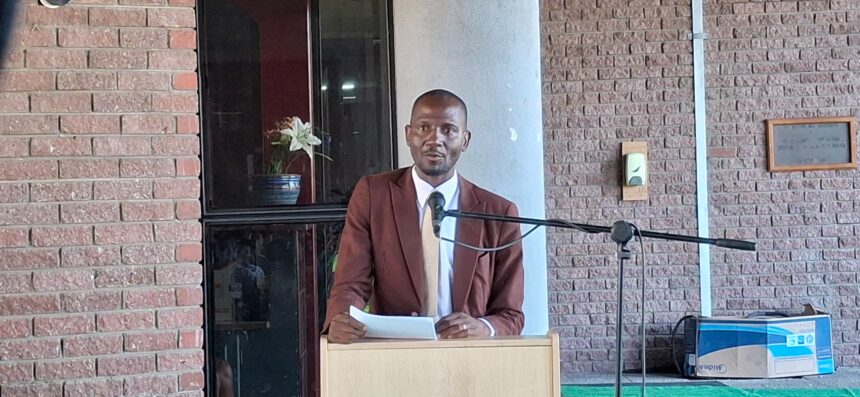Rudolf Gaiseb
Works and Transport minister Veikko Nekundi has reaffirmed the task of shaping the infrastructure and transport networks that drive economic growth and social progress.
In the general staff meeting on Monday, he urged strengthening the operational capacity of the ministry for timely and effective delivery of services.
He said the management of Government Garages warrants his urgent intervention. “The current state of affairs, where vehicles and equipment remain in disrepair, is untenable;.Therefore, those in charge of the Government garage must ensure that all non-functional areas within the Government Garages are fully operational within three months to improve fleet maintenance and service reliability,” he noted.
Within three months, he directed, all Government Garages must be cleared of redundant cars.
Delays in the payment of suppliers have been a serious issue in the ministry to the extent that it causes the closure of small enterprises and subsequent job losses.
“Such a practice must forthwith find space in the dustbin of history. Tactical legal victories against enterprises cannot be permitted any longer. Invoices must be paid on time.
We must appreciate that delayed payments not only hinder project execution but also undermine trust in our ministry’s ability to deliver,” he said.
He called for the institution of an efficient and transparent payment process to ensure all outstanding obligations are settled without unnecessary delays.
The ministry currently has a total of 957 vacant positions in offices.
This comprises the office of the executive director, the department of administration and centralised support services (354), and the department of works (556), while qualifying professionals of these entail electrical, mechanical and civil/structural engineers, architects and quantity surveyors.
There are also vacancies in the department of transport (42), the directorate of aircraft accident investigations (3), and the sub-division of internal audit.
Nekundi directed the human resource division to ensure that all 957 vacancies are filled within three months, with proactive measures in place should suitable candidates not be immediately available.
In line with its commitment to capacity building and skills development, he added that it is imperative to accommodate as many interns as possible and ensure due recognition for their contributions.
“We must acknowledge our obligation to provide essential hands-on experience for our youth, and be the enabler that fosters their professional growth and, at the same time, strengthens the workforce pipeline within the Ministry of Works and Transport,” he noted.
Procurement
To support local enterprises and ensure the utilisation of local manufacturers, Nekundi emphasised that at least 1/3 of sub-contractors should be locally based.
He stressed it is a patriotic responsibility to ensure Namibian-based manufacturers are favoured over imports, and for any procurement, conditions favouring locally-based manufacturers must be mandatory.
He opined that 1/3 of labourers be hired from the locals in which the project is being implemented.
“It is unacceptable that certain materials, such as bricks, are transported over vast distances while there are competent local manufacturers available.
This practice increases project costs and disadvantages local businesses,” he stated.
“Effective immediately, all procurement policies that inadvertently exclude local suppliers must be reviewed and revised accordingly.
If there is a law that hinders what I just stated, my office should be informed within 30 days so that I can trigger the necessary amendment to such legislation,” he added.
The ministry aims to champion policy initiatives that reflect commitment towards service delivery, economic prudence and national development.
–rrgaiseb@gmail.com


